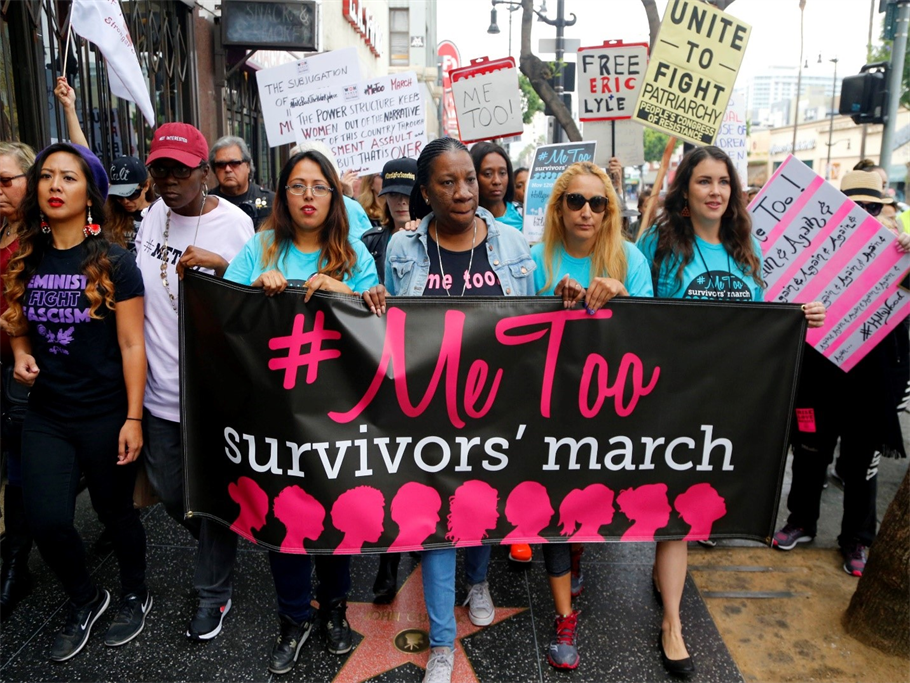

She said the person/employer, not
to mention the name, took her in an “exemplary fashion” but she rejected the
harasser quickly.
She still faced the hateful
attitude her colleagues showed towards her and the opposite towards the
harasser.
"This type of behaviour typically doesn't happen on a one off. So,
naturally, there was further information about other incidents... which helped
make what I did more credible."
Soklis, after struggling too
much, is a successful president of Cox Automotive and comes in the top ranks.
However, she thinks that such kind of situation in a career frightens people to
speak up publicly.
In the recent times, many claims
about the inappropriate behavior have been made of the most respectable and
prominent people of Canadian industries like politics, media, theatre, sports,
and entertainment. But still, corporate Canada has failed to take any step and
is remained silent.
This silence will not turn the
problem down. in fact, the lawyers say that #MeToo movement is slowly making
its way into corporate Canada.
In the recent survey of a public
relations firm navigator, it has been revealed that 40 percent of Canadians
claimed that they come across sexual harassment at their workplace. In
February, the polling by Human Resources Professionals Association Members came
to know that around 17 percent respondents witnessed such behavior towards an
employee at work.
The experts and lawyers told The
Canadian Press that pile of factors makes the sexual misconduct to drop out of
Canada’s corporate offices.
One reason is that usually there
is no woman at the top position of the corporate ladder which makes them feel
they cannot speak up and they have no one as their partner.
Canadian Press analysis released
that even Canada’s most influential companies have only 8 percent women as
top-earner, as listed on the TSX 60 index. No woman was there as a head of any
of Canada’s TSX 60 companies and two-thirds had not a woman who might be taken
as a top earner during their latest economic year.
Women who do not talk about this
problem is taken as a troublemaker in Canada’s corporate sector, that will
eventually lead towards their loss of potential and their career shuts down.
The experts said that such
allegations usually settle down in houses in order to avoid future problems and
sometimes strict non-disclosure agreements are opted.
And women who show themselves
fearless and take their case towards the legal route find justice as a
slow-moving object.
Canadian Imperial Bank of
Commerce’s Diane Vivares' boss abused her by asking to get in the private
during a holiday party, and when she said "no"
he "proceeded to shove his hand down
the inside of her skirt," according to court documents.
It happened in 20007. The bank
fired her in 2015 and in 2016 filed a $1-million sexual harassment and sexual
assault lawsuit that still looks beyond the courts.
CIBC and the plaintiff Kevin
Carter stepped opposite of Diane and denied her every claim. She chose to stay
silent through her lawyer as her case is still present in the Ontario Superior
Court.
A CIBC spokesperson told the bank
cannot say a word about the details of the case as it is still under the legal
protections, but "no form of
harassment, discrimination, bullying or any other kind of violence in the workplace
will be tolerated."
This is now turning into a huge
ball as every workplace is facing such misconduct and behavior.
It is almost a year since Me Too
movement started and a mass of anger and rage against sexual assault put
forward by many women who insisted for a change. This happened after the sexual
allegations were made against Hollywood producer Harvey Weinstein.
Many lawyers and investigators
supported this movement as corporate Canada shows no interest, but the movement
keeps on rising in the background.
Such allegations in the workplace
are increasing day by day by the women and the companies are setting practical
steps to make things under control.
One-in-five Human Resources
Professionals Association members in response to a polling in February told the
number of complains have increased about the harassment.
Employment lawyer Jennifer
Mathers McHenry claimed of seeing much such behavior in six months than in her
whole career life. But such lawsuits usually set down via a confidential
agreement said McHenry, who is with the Toronto firm Teplitsky Colson.
"It keeps this in dark corners, and a light should be shone."
"But at the same time, it is not only the accused and the
institutions that benefit from the confidentiality agreement, to some degree it
can be the claimants themselves."
If these issues are taken with
silence, it would decrease the potential stigma while looking for a new
employment, but if it is put in privacy, it would settle down quickly without
long court process, lawyers say.
Employment lawyer and workplace
investigator Gillian Shearer told that with the help of hotlines or human
resource departments and other protocols, many corporations help to maintain
the privacy of the allegation.
She continued that average
banker, lawyer or financial professional does not really go out publicly with
the allegations. Even in Shearer's firm, such cases have been increased which
made workplace investigations more crucial, requiring confidentiality.
"Regardless of how much awareness there will be out there if
you're a senior female leader at an investment organization and you want to
raise a complaint, there's still a concern about stigma and what it would do to
your career."
Keep clicking MKTLIST.CA
Be the first to Comment